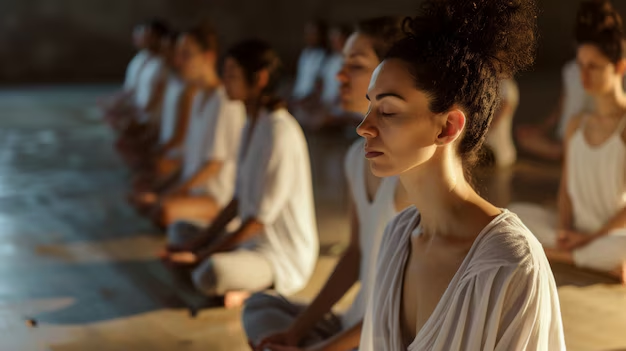
Meditation benefits are many, but risks and potential side effects are also important to know about. It can better equip practitioners for their journey into meditation by knowing the existing possible dangers or side effects of this thing.
Let us know the side effects associated with meditation which can be categorized under both psychological and physical side effects along with practical precautions. Keeping oneself informed helps one to enjoy as much of the positive impact of meditation while minimizing the negative side effects.
What are the potential side effects of meditation?
Potential side effects of meditation include increased anxiety, discomfort, and emotional distress during sessions. Some people may also experience physical discomfort or difficulty focusing initially, but these often diminish with practice.
While meditation in general is a safe practice, some may suffer adverse effects during their debut experience and even in the following sessions if they possess undiagnosed mental conditions. For example, some become anxious or feel uneasy as they discover repressed emotions or thoughts in the subconscious while meditating.
The first time physical discomforts arise from sitting for so long with their bodies locked up in stressful postures causing back or hip pains. Difficulty in focusing or racing thoughts also might be common for starters. Regular practice usually reduces them; nonetheless, mindfully approaching meditation and acutely being aware of one’s own mental and physical limits is important.
Can meditation trigger negative emotions?
Meditation can sometimes trigger negative emotions, especially when confronting unresolved feelings or trauma. This experience is normal and part of the healing process.
Some people may develop so much negativity while meditating. This could be due to issues from past traumatic experiences or stress that is pent up in them. The person may become painfully aware of such emotions when meditating. However, the negativity felt while meditating is a normal part of healing.
This happens not by avoiding them, though-but by this knowledge, becoming able to process them, shows more emotional maturity. It is always best to seek a guide from an experienced teacher teaching meditation or a mental health care provider when you are facing these tough emotional moments during your sessions.

How can meditation lead to increased anxiety?
Meditation can lead to increased anxiety for some individuals when they become overly aware of their thoughts and feelings. This heightened awareness may initially feel overwhelming.
At times, meditation heightens the feelings of anxiety experienced by a particular person. It occurs when they become much more perceptive about the happenings within their minds. In fact, this increased awareness will hurt the one who hates confrontations. When working with a focus on breathing or thoughts, people who experience previously repressed anxieties get the strength of expression which makes them feel overwhelmed.
This is usually a temporary effect and may even decrease as one gets accustomed to the practice. One can reduce this very easily by practicing with some other good teacher who guides it well and by grounding techniques like deep breathing that will keep the mind centered.
What precautions should I take before starting meditation?
Before starting meditation, it’s important to create a comfortable environment, choose a suitable technique, and consult with a healthcare professional if you have a history of mental health issues.
Taking precautions beforehand while starting to meditate can make the session much more enjoyable and reduce your possible adverse effects. Let’s first discuss the preparation of setting up a comfortable environment free from distractions, making it relaxing. Of course, the first consideration is selecting a meditation technique that feels right for you, so you can choose from mindfulness, guided meditation, or loving-kindness meditation.
If you’ve had mental health issues in the past, it may well be wise to seek out a healthcare professional or a qualified meditation teacher who can give you some very sound advice. But you must start with brief sessions to smoothly get accustomed to the practice, and be very aware of your emotional and physical reactions in every session to be safe and to truly feel the experience.
Can meditation affect physical health negatively?
Meditation can negatively affect physical health if practiced incorrectly, leading to issues like strain or pain from poor posture. It’s important to maintain proper alignment during sessions.
While meditation is generally beneficial to the physical body, there are numerous cases where poor practice leads to undesirable effects. Bad posture, for example, slouching or sitting in an uncomfortable position for such long periods might cause strain, discomfort, or pain in the back, hips, or knees.
Additionally, those who jump into long sessions without gradually increasing their practice are susceptible to exhaustion or tension. Good posture and comfort are expected while meditating. Proper cushions or chairs will improve the likelihood of keeping good posture and the least possible risks for injury. If paying attention to body parts and changing positions according to comfort needs can maintain a positive experience while meditating.

What should I do if I feel uncomfortable during meditation?
If you feel uncomfortable during meditation, it’s essential to gently shift your focus, adjust your position, or take a break. Listening to your body is key.
Discomfort is always a temporary aspect that can creep up on you during meditation. Generally, discomfort should be addressed in the right way. If one becomes uncomfortable, he should pause for a moment and reevaluate his posture; adjusting his posture or changing his sitting structure often eases physical strain.
If the feeling does not fade, it’s best to slowly redirect attention to the breath or some other anchor and let the mind settle without attempting to force the feeling. It’s perfectly okay to take a break; getting up for a few minutes can give one just enough space to regroup and come back with a clearer mind. Lastly, listening to the body is how a fulfilling practice is built.
Is it safe to meditate with a history of mental health issues?
Meditation can be safe for individuals with a history of mental health issues, but it’s best to consult a mental health professional first. Personalized guidance is key.
Meditation is a beneficial practice for the history of mental illnesses; safety first for these practitioners is very advisable to consult with a mental health worker before meditation begins. They can also lead you to techniques that will suit your requirements best. There are other types of meditation practices that may inflict pain or exacerbate or heighten present medical conditions, so meditation should be done responsibly.
You can also begin with short periods under the guidance of a well-trained instructor who can help you and give you the right guidance for your meditation practice. In simple words, meditation is an excellent practice to help your mental health if done responsibly and with proper precautions and assistance.
Wrapping Up!
In that respect, knowing the risks and consequences of meditation lays the groundwork for a safe practice. Knowing when one is emotionally or physically uncomfortable allows practitioners to take measures to prevent such hurdles. If, therefore, and with proper precautions, such as consulting professionals and keeping appropriate posture, the many benefits of meditation are enjoyed, then probably mindfulness and, to some extent, increased self-awareness will allow individuals to enjoy meditation and to use it to practically elevate and improve their health and wellness level at large.

